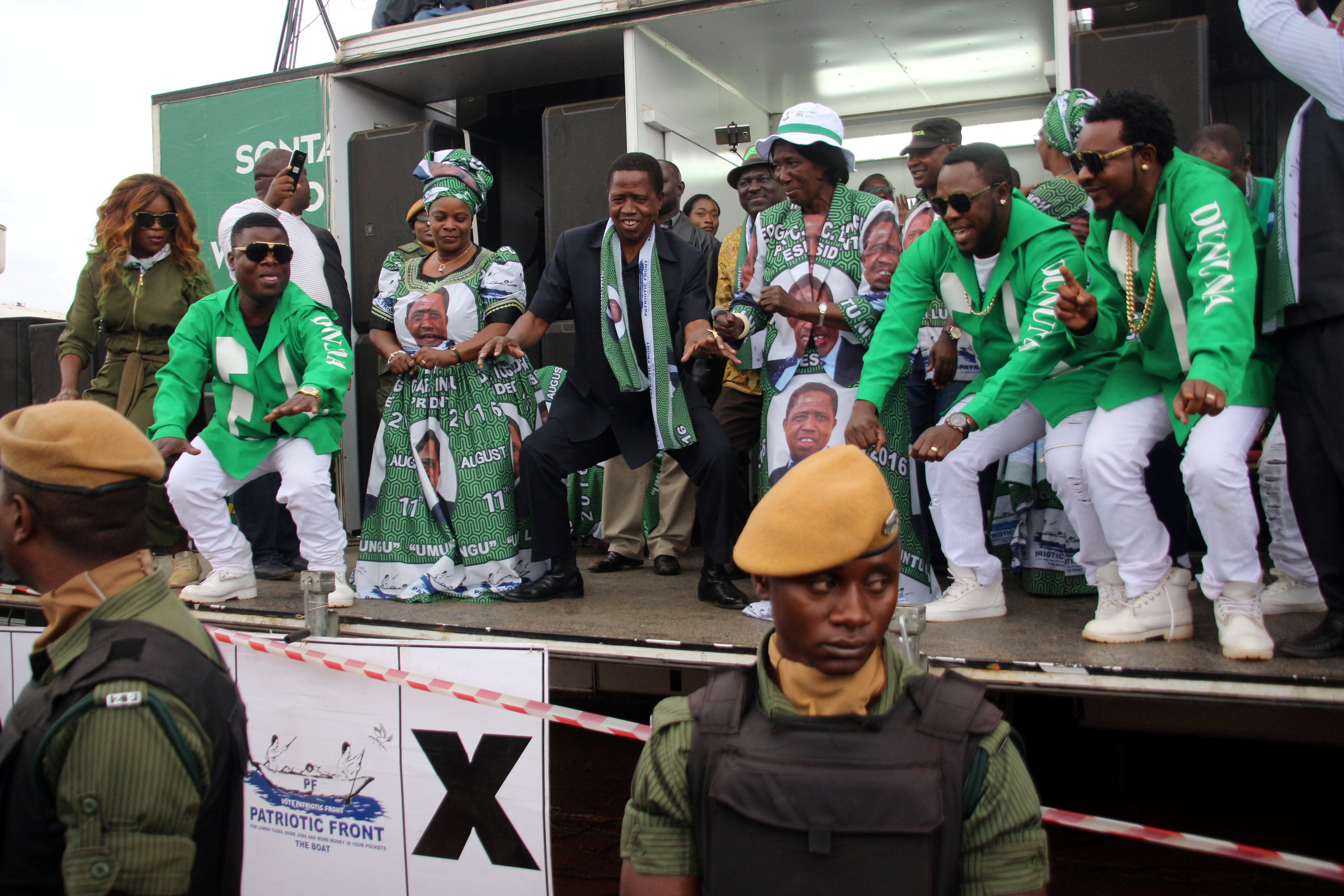Image: Edgar Lungu (C, in black suit), leader of the Patriotic Front party (PF), dances before addressing his supporters during a rally ahead of Thursday’s presidential elections in the capital, Lusaka, Zambia August 10, 2016. REUTERS/Jean Serge Mandela
By Chris Mfula and Stella Mapenzauswa
LUSAKA (Reuters) – Zambia braced for what is expected to be bruising battle on Thursday to elect a new president and legislators, contested against the backdrop of lethargic growth as weak commodity prices have hit Africa’s No. 2 copper producer.
President Edgar Lungu and his main rival Hakainde Hichilema both have said they are confident of outright victory, but either could fail to garner more than half of the vote as required by electoral law, necessitating a second round.
After a campaign marred by violence, Lungu and Hichilema on Wednesday made their final plea for votes in the capital, Lusaka, each pledging to steer the economy onto a firmer footing.
“I have been on probation for one year, six months and I think I have done very well. I promise to serve you even better,” Lungu told thousands of supporters at his final rally, referring to last year’s vote to replace late president Michael Sata in which he narrowly beat Hichilema.
“And I promise to respect the results and I will not fight even one day, to remain in State House. But I will not allow somebody to come to State House (through) violence or intimidation,” he added.
TENSIONS HIGH
Supporters of Lungu’s ruling Patriotic Front (PF) and Hichilema’s United Party for National Development (UPND) have clashed in the run-up to the poll, forcing the electoral commission to temporarily suspend campaigning at one point.
Tensions are high in what is otherwise one of Africa’s most stable democracies, as Zambians grapple with rising unemployment after mine closures, chronic electricity shortages and soaring prices of household goods.
Economist-turned-businessman Hichilema says Lungu, a former lawyer, lacks the expertise to manage the economy.
“The difference between PF and UPND is what we bring to the table, knowledge of the financial markets and economics,” Hichilema said on a radio programme on Wednesday. “We are business people. We understand the economy, this economy is broken.”
Zambia is in talks with the International Monetary Fund over a possible financing deal, after conceding its budget deficit, which has averaged 4.8 percent of gross domestic product in the last two years, was unsustainable.
Lungu insists the economic downturn was beyond his control given Zambia’s heavy reliance on copper exports, but that his government has made strides in commissioning new power plants and investing in diversifying the economy toward sectors like agriculture.
To win, a presidential candidate will have to garner 50 percent of the valid votes cast plus at least one additional vote, and a re-run must be held within 37 days if no one succeeds.
Hichilema also says that with the police blocking several of his rallies and coverage by state media biased in favour of the ruling party, the election will not be free and fair. Lungu, however, insists the playing field has been level.
“The probability of a contested election result is growing, which would undermine the credibility of the vote and trigger more widespread partisan violence,” said Robert Besseling, head of the EXX Africa think tank.
(Writing by Stella Mapenzauswa, editing by G Crosse)
Copyright 2015 Thomson Reuters. Click for Restrictions.


